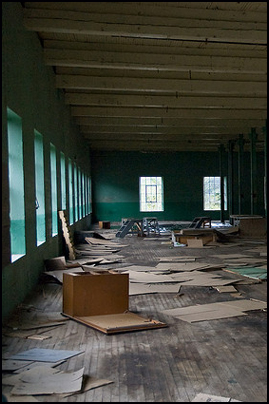
“Corporate America’s chokehold on wages” is a piece by Harold Meyerson that appeared in The Washington Post, Austin’s The Statesman, and many other newspapers. The author begins by engaging our interest in the question of why we, as American consumers, are still in a dismal economic situation. The answer is twofold: a lot of people are unemployed, and a lot of people with jobs are underpaid.
Writing in a conversational tone, Meyerson explores the implications of the words and ideas of J.P. Morgan Chase’s chief investment officer, Michael Cembalest. The journalist says of Cembalest,
He asserted in the July 11 edition of ‘Eye on the Market,’ the bank’s regular report to its private banking clients, that ‘US labor compensation is now at a 50-year low relative to both company sales and US GDP.’
There are three major reasons why corporate profits are flourishing: low wages, the offshoring of jobs, and innovation stemming from research and development. The biggest factor contributing to swollen profits, Meyerson says, is the low pay. In the 500 top companies that Standard & Poor keeps track of,
… profit margins (the share of a company’s revenue that goes to profits)… are at their highest levels since the mid-1960s…
Meyerson gives a very complete explanation, the gist of which is that, for workers, both wages and benefits have shrunk. He writes,
This decline in wages and benefits, Cembalest calculates, is responsible for about 75 percent of the increase in our major corporations’ profit margins.
As for the causes, there seem to be several. Although good pay is better than easy credit, something went wrong years ago, when it became easier for Americans to get ruinous amounts of credit than to get the adequate wages they needed and deserved. It’s like bringing up a child on cotton candy instead of vegetables. The long-term results can be gruesome.
Also, Meyerson blames the decline of the unions and talks about a hearing held by the National Labor Relations Board in July, during which testimony from 61 witnesses has revealed that…
… union elections have declined 80 percent since 1970… In the America of 2011, there are scarcely any union organizing campaigns. There are fewer union members: Just 7 percent of private-sector employees are unionized, down from 35 percent in the 1950s… The strike as a bargaining tool for workers is now the province of professional athletes, the last American employees who have enough clout even to contemplate taking a walk… Surely the fact that the great majority of American employers no longer have to sit down and hammer out collective bargaining contracts with their workers has contributed to the increase in profits at wages’ expense.
One thing that corporations often forget is that underpaid workers can’t afford to buy stuff. And who are underpaid workers not able to buy stuff from? The corporations. If almost everybody is broke, who is left to fill the role of consumer, customer, or client? In other words, stiffing the workers would seem to be a counterproductive policy, in the long run. Paying people fairly, even generously, is good for business.
Yet, most working people are underpaid. Some have supplemental means, or extraordinary management skills, or three jobs. They contrive to hang on by their fingernails to a viable lifestyle, and experience a relatively high degree of housing security.
Others are the working poor. Even with a full-time job, many workers are unable to afford housing even for themselves. And a family? Forget it. The working poor are tossed from one precarious situation to the next, sometimes living in a vehicle or a relative’s garage, often dependent on an aid program to make it at all, eternally teetering on the edge of disaster. The economic homeless are employed and ought to have every reasonable expectation of being able to afford a place to live, and yet, they can’t.
House the Homeless invites you to learn more about the Universal Living Wage. The benefit of the ULW is that it will end homelessness for over 1,000,000 minimum-wage workers, and prevent economic homelessness for all of 10.1 million minimum-wage workers.
Reactions?
Source: “Corporate America’s chokehold on wages,” WashingtonPost.com, 07/19/11
Image by Vimages (Pierre Vignau), used under its Creative Commons license.


